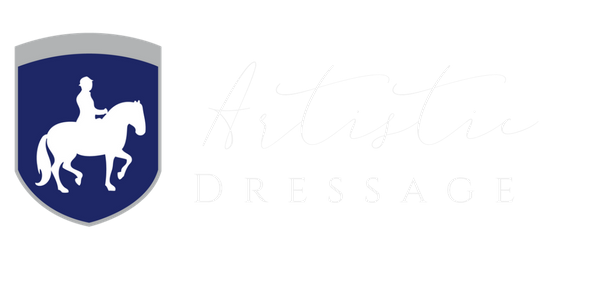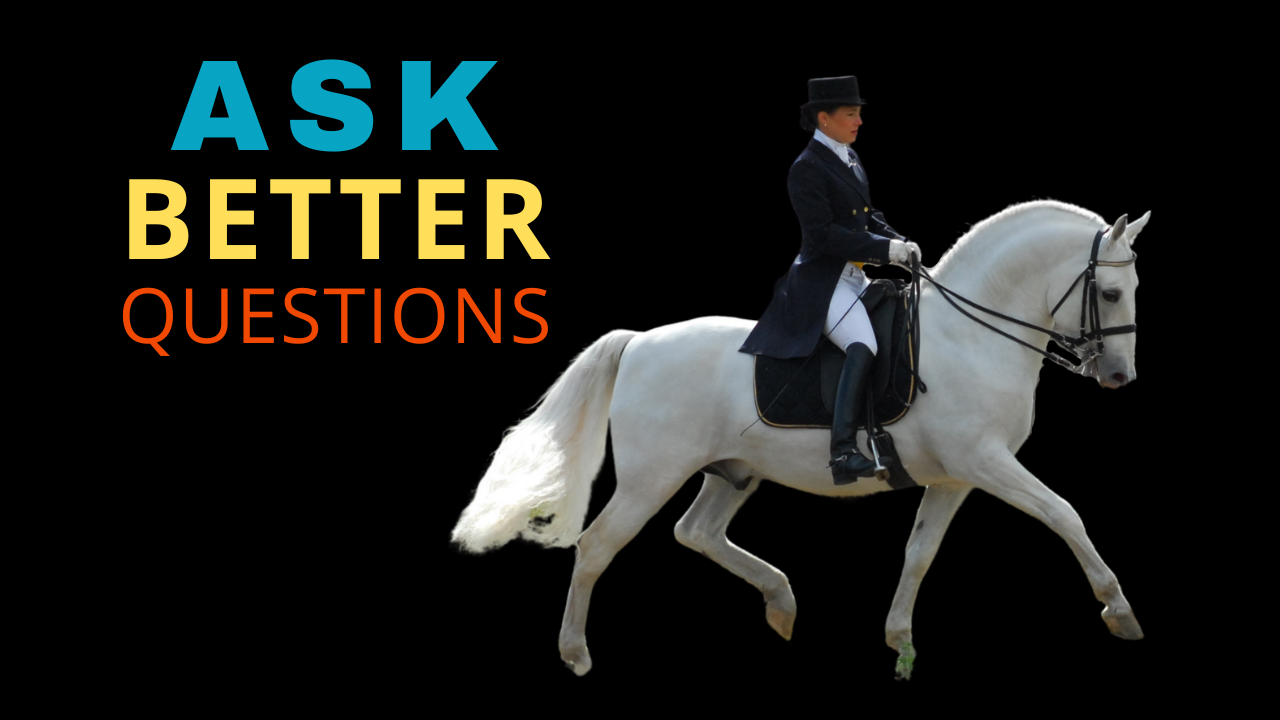This week I want to touch on something that is very important in training and riding, but unfortunately, it is hardly ever addressed in lessons or in books and magazine articles. It has to do with training strategies. How do you decide how to proceed next with your horse? How do you know how to improve a movement, a transition, a turn, the rein contact, the horse’s suppleness, or any other problem you may encounter? Many good, experienced riders make these decisions purely intuitively, based on their gut feeling and their experience with many different horses, and these riders are very often correct in their decisions. But this kind of skill is unfortunately difficult to communicate and to pass on to others.
When I was young, I always had the feeling that all the solutions to my problems were right in front of me, in the horse. The horse has all the answers. I just didn’t know how to access that information, and it drove me crazy, because the solution was so near, yet so far at the same time. The problem was that I didn’t know what kinds of questions I needed to ask, because that was not part of the traditional teaching style at the time.
Through my academic training as an Egyptologist, I learned that whenever you are researching data of any kind, whether it’s texts, or archaeological remains, or anything else, you need to ask questions of the material, look for recurring patterns, and investigate certain aspects of it in order to access the information they contain. Not all questions are created equal, however. If you ask good questions, you will get good answers and make interesting observations that will help you progress. If you ask the wrong questions, you will get irrelevant results, i.e. you get stuck.
You can find the same realization among a variety of motivational speakers, business consultants, and marketing experts. There you often find statements like: “The quality of your questions determines the quality of your results.” I have found this to be absolutely true in riding as well.
So, over the years, I have developed a catalog of questions that help me determine the root cause of a problem and which action to take next, whether I’m in the saddle myself or whether it is a student in a lesson.
Here are a few to get you started:
Where is my intended line of travel?
Are my horse’s feet on this line?
Is one foot deviating away from the line? Which one?
Which leg is supporting the majority of the weight?
Which leg should be supporting the majority of the weight?
Did the horse do the exercise?
If yes, how did he do it? What stood out?
Which part of the exercise is especially difficult for the horse?
Is the horse better, worse, or the same after the exercise?
Is the exercise more difficult on the right rein or the left rein?
In which direction is the exercise more effective?
What is it that is preventing the horse from doing what I want to do?
Which skills is he lacking (body awareness, balance, coordination)?
Which areas of the body are stiff (poll, neck, shoulder, rib cage, pelvis)?
What can I change in my seat and aids to help him more?
Where is my weight (seat bones, thighs, knees, stirrups, inside, outside)?
How can I modify the exercise to make it easier (leave something out, replace a more challenging element for an easier one)?
How can I break the exercise down into smaller steps?
What did I do just before the mistake happened?
I could write an entire article on each one of these questions, but that would exceed the scope of this article.
Don’t feel stressed by the number of questions. You don’t need to use all of them all the time. Rather, look at them as troubleshooting tips when you can’t find the root cause of a problem, or if you can’t figure out how to fix a problem with your normal problem-solving strategies.
You can also take them as avenues for investigation. Select one or two of these questions for observation and reflection as you are riding.
Let me know if this kind of information is helpful to you or not. I would also love to hear if you have your own set of questions you like to ask when you are riding, or if you have specific problem-solving strategies.
Have fun riding. I will talk to you next week.



